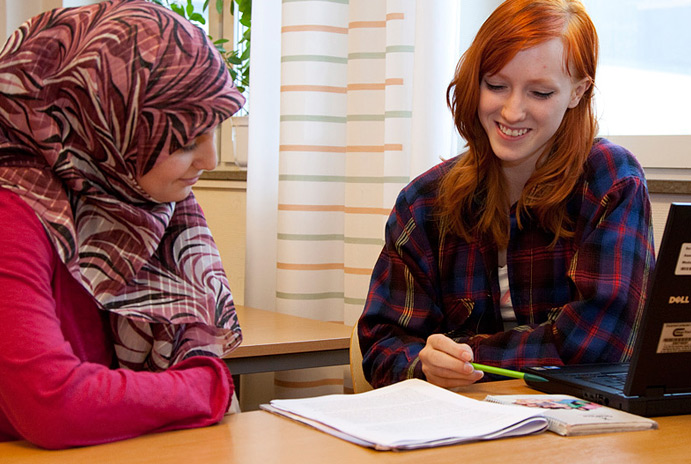Introductory programme
Engelska (ENG)
Introductory programmes are for those who do not qualify for the national programmes in upper-secondary school. What programme you can attend depends, among other things, on what your goal is with your education in the programme.

An alternative to attending an introductory programme is to continue in compulsory school for up to an additional two years to qualify. The introductory programme shall give those who do not qualify for a national programme an opportunity to enter such a programme or lead to you being able to get a job.
The education in an introductory programme must follow a plan for education that contains objective, length and the primary content. An individual study plan shall also be prepared for every pupil. It shall be structured according to your goal with your education, your needs and interests.
Since autumn 2019, there are four different introductory programmes: Programme-oriented option, Vocational introduction, Individual alternative and Language introduction. None of the programmes result in degrees, but rather the idea is that they shall lead further to another national programme or to employment.
The education is full time and the content of the programme is set in an individual study plan. As of 1 July 2019, the individual study plan shall describe the education's objective, main content and length. The pupil’s goal with the programme then affects what the individual study plan will look like. A pupil who completes an introductory programme receives an upper-secondary school certificate.
In order for you to get help to find out what programme suits you best, you can talk with a study and career adviser at your school.
The four different introductory programmes
Programme-oriented option
The Programme-oriented option is for those who want an education that is focused on a certain national programme so that you will be able to be admitted to the national programme as soon as possible. The national programme that the education is focused on can be either a vocational programme or a university-preparatory programme.
It is your home municipality that is responsible for all pupils that qualify for the Programme-oriented option being offered the programme.
You qualify if you have
- a passing grade in Swedish or Swedish as second language
- mathematics and English, as well as three other subjects or
- Swedish or Swedish as a second language
- mathematics or English and four other subjects.
Vocational introduction
Vocational introduction is for those who have a vocationally oriented education, but lack the passing grades required to attend a vocational programme.
The vocational introduction can contain training in order for you to be able to get a job or be able to apply to a vocational programme. The education may, for example, include compulsory school subjects that you do not have a passing grade in, courses from vocational programmes, on-the-job learning or placement and other efforts that you need for your knowledge development. After the programme, you can apply for work or continue studying at a vocational programme.
Individual alternative
The Individual alternative is for those who want an education to be able to get a job or to be able to study further in upper-secondary school or another education. You are missing some of the passing grades required to enter a national programme.
The education may, for example, include compulsory school subjects that you do not have a passing grade in, courses from national programmes and other efforts, such as motivation efforts or placement. After the programme, you can apply for work or continue studying in upper-secondary school.
Language introduction
Language introduction is for those who are recent arrivals to Sweden and lack the passing grades required to attend a national programme and need to have an education in the Swedish language. The education is focused on the Swedish language in order for the pupil to be able to continue on to another introductory programme, national programme, adult education or a profession. The education is set up and adapted to the pupil’s experiences, knowledge and goal with the education.

The education will include instruction in Swedish and other subjects from compulsory school, courses from national programmes and other efforts you need for your knowledge development. After the education, you can continue studying in upper-secondary school or in another programme.